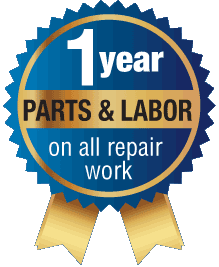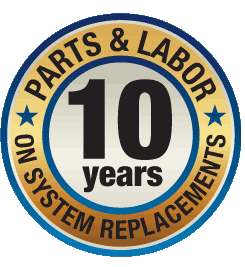It is tough to imagine a time when dwellings, schools, hospitals, office buildings, houses of worship and various modes of transportation were without air conditioning. This not only means no central A/C – not even the paltriest window unit was available! People had no idea how to install A/C in cars, trains or buses. The creation of air conditioning simply changed everything about America.
One reason that movies became so popular had to be because, for a long time, movie palaces were the only places in town with air conditioning. Other areas of the country, such as South Texas, would hardly be habitable without air conditioning.
But, how did it all start?
The Beginnings
Actually, people who live in hot climates or have to work in hot buildings have been looking for ways to keep cool for millennia. The ancients used to throw wet mats on the floors of their buildings to cool them down. They’d also hang wet mats over the entrances to their tents so that when the wind blew through them the evaporation of the water kept the air relatively cool. Since then, a variety of systems have been used to keep the temperature bearable. Even Leonardo da Vinci briefly ventured into the AC business by designing a fan to provide ventilation. But it wasn’t until the 19th century and the Industrial Revolution that inventors truly began to design reliable air-cooling systems.
Around the turn of the last century, an engineer named Alfred Wolff designed a primitive sort of air conditioning system for some buildings in New York City, including Carnegie Hall. Around the same time, Willis Carrier, another engineer, finally came up with a system that cleaned and controlled the circulation of air as well as controlled its humidity levels and temperature. Our technicians at Richmond’s Air, the premier Houston air conditioning company, are proud to maintain and service air conditioners that still bear his name.
Yet another engineer, Stuart Cramer of Charlotte, North Carolina, was said to have coined the term “air conditioning” around 1906.
The Results of Air Conditioning
Interestingly, the benefits of steady and reliable air conditioning took a while to catch on. Many advances took place during the Great Depression. It was during this time that air conditioning began to be installed in those homes and apartments that had the benefit of electricity. The Baltimore and Ohio railroad installed air conditioning in their trains in 1931, and Greyhound put air conditioning on its buses in the 1940s, but air conditioning wasn’t widespread among automobiles until the 1950s. It is probably no accident that the interstate highway system came into its own around this time. It is daunting to imagine long car trips in the summer without air conditioning!
Air conditioning also helped save lives in hospitals and medical facilities by controlling the temperature, humidity and cleanliness of the air in operating rooms. Clean air cuts down on infection, cooler temperatures spare both the surgical team and the patient the stress of a hot room, and controlled humidity prevented anesthetics from exploding.
Supermarkets, too, might not be possible without air conditioning to keep fruits and vegetables cool, to say nothing of keeping frozen foods frozen. Also, controlling the temperature allows metal parts to fit together, as most metals shrink when cooled and expand when heated. All in all, schools, homes, factories and offices are simply more pleasant places to be with air conditioning.
Modern HVAC
With the air conditioning industry came the need for technicians to maintain the systems, perform AC repair and replace the units when they could no longer be repaired. Our trained and certified technicians at Richmond’s Air not only tend to our customer’s air conditioning needs, but also HVAC (heating, ventilation and air conditioning) systems in general. We also pride ourselves on keeping abreast of the latest advances in HVAC technology.
We are proud to be the Houston air conditioning company residents of Harris County turn to for all their HVAC needs. Don’t hesitate to contact us.
 Read reviews
Read reviews








